
Teyateyaneng: The Cultural Heartbeat of Lesotho
Teyateyaneng, often affectionately referred to as 'TY,' is a vibrant town nestled in the foothills of the Maloti Mountains in Lesotho. Known for its rich cultural heritage and artisan craftsmanship, TY offers a unique window into the traditional life of the Basotho people. The town is a bustling hub of activity, with colorful markets, traditional thatched-roof houses, and a warm, welcoming community that makes every visitor feel at home. One of the highlights of visiting Teyateyaneng is exploring its renowned craft centers. Here, you can witness local artisans at work, creating stunning tapestries, pottery, and intricate beadwork. These crafts are not only beautiful souvenirs but also a testament to the town's deep-rooted cultural traditions. The Leribe Craft Centre, for example, is a must-visit spot where you can purchase handmade items and support the local economy. Nature enthusiasts will find plenty to admire in and around Teyateyaneng. The town serves as a gateway to the scenic Maloti Mountains, offering numerous hiking trails and breathtaking views. The nearby Phuthiatsana River provides opportunities for picnicking and enjoying the serene natural landscape. Whether you're an adventurer or someone looking to immerse yourself in local culture, Teyateyaneng has something to offer everyone.
Local tips in Teyateyaneng
- Visit the Leribe Craft Centre to see local artisans in action and purchase unique handmade crafts.
- Take a hike in the Maloti Mountains for stunning views and a taste of Lesotho's natural beauty.
- Explore the local markets to experience the vibrant atmosphere and buy fresh produce and traditional Basotho items.
- Plan your visit during the Morija Arts & Cultural Festival for an immersive experience of Basotho music, dance, and art.
- Carry cash, as many local vendors and markets do not accept credit cards.
Teyateyaneng: The Cultural Heartbeat of Lesotho
Teyateyaneng, often affectionately referred to as 'TY,' is a vibrant town nestled in the foothills of the Maloti Mountains in Lesotho. Known for its rich cultural heritage and artisan craftsmanship, TY offers a unique window into the traditional life of the Basotho people. The town is a bustling hub of activity, with colorful markets, traditional thatched-roof houses, and a warm, welcoming community that makes every visitor feel at home. One of the highlights of visiting Teyateyaneng is exploring its renowned craft centers. Here, you can witness local artisans at work, creating stunning tapestries, pottery, and intricate beadwork. These crafts are not only beautiful souvenirs but also a testament to the town's deep-rooted cultural traditions. The Leribe Craft Centre, for example, is a must-visit spot where you can purchase handmade items and support the local economy. Nature enthusiasts will find plenty to admire in and around Teyateyaneng. The town serves as a gateway to the scenic Maloti Mountains, offering numerous hiking trails and breathtaking views. The nearby Phuthiatsana River provides opportunities for picnicking and enjoying the serene natural landscape. Whether you're an adventurer or someone looking to immerse yourself in local culture, Teyateyaneng has something to offer everyone.
When is the best time to go to Teyateyaneng?
Iconic landmarks you can’t miss
Blue Mountain Inn
Discover the beauty of Lesotho while enjoying cozy accommodations at Blue Mountain Inn, the perfect retreat in Teyateyaneng.

Basotho Hat
Discover the heart of Lesotho's culture at Basotho Hat, a vibrant shopping hub offering unique traditional crafts and souvenirs.
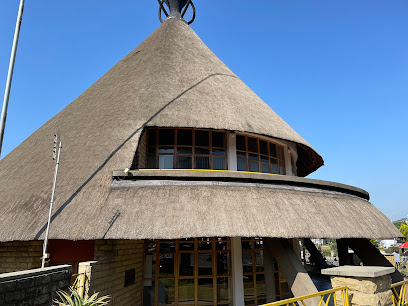
Liphofung Cave,chalets
Discover the enchanting Liphofung Cave in Khukhune, Lesotho, a natural wonder steeped in history and breathtaking beauty, perfect for every adventure seeker.
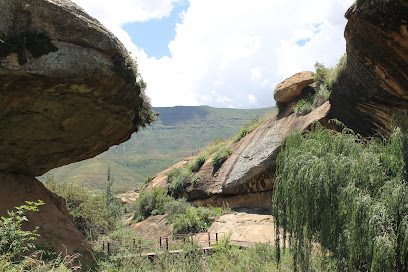
The Lion Rock Mountain
Explore the stunning landscapes and rich culture at the iconic Lion Rock Mountain in Maseru, Lesotho, a must-visit destination for nature lovers.
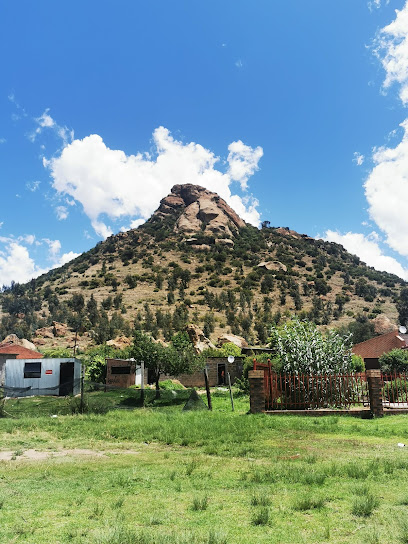
Nexx square
Discover the cultural heart of Maseru at Nexx Square, a vibrant monument embodying Lesotho's rich heritage and community spirit.
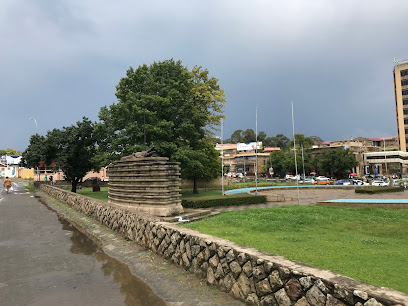
Ka Pitseng Guest House
Discover the charm of Lesotho at Ka Pitseng Guest House, where comfort meets local culture in Teyateyaneng.
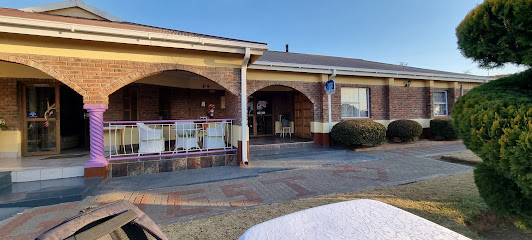
Kome Caves
Discover the Kome Caves, a stunning natural attraction in Mateka, featuring ancient rock art and breathtaking geological formations.
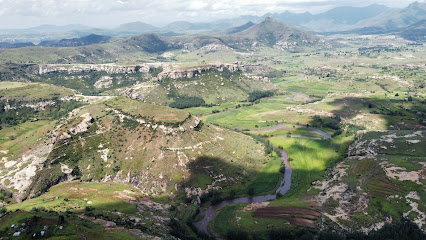
King Moshoeshoe I Royal Graves at Thaba Bosiu
Uncover the rich heritage of Lesotho at Thaba Bosiu, the royal gravesite of King Moshoeshoe I, surrounded by stunning landscapes and deep historical significance.
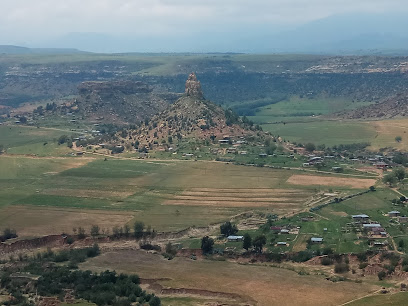
Ha Kome Caves
Uncover the enchanting beauty and ancient history of Ha Kome Caves in Mateka, a must-visit destination for adventurous travelers in Lesotho.
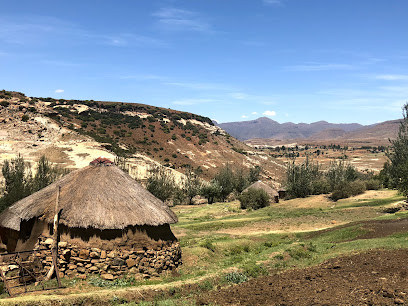
Gates of Paradise Pass
Explore the breathtaking Gates of Paradise Pass in Malealea, where stunning landscapes meet rich history in a captivating travel destination.
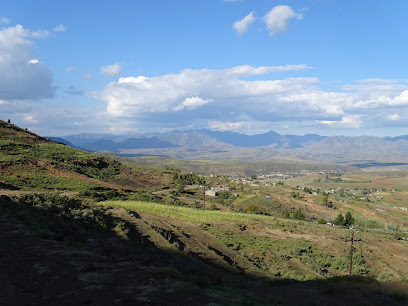
The Stone Guest House
Discover the charm of The Stone Guest House in Teyateyaneng, where comfort meets the breathtaking beauty of Lesotho's landscapes.

CEHAL Hospital: Center For Equal Health Access Lesotho
Discover CEHAL Hospital in Lesotho, where quality healthcare meets a commitment to equal health access for all, ensuring peace of mind during your travels.
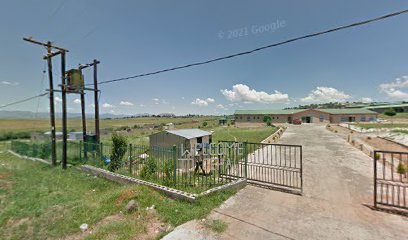
Standard Lesotho Bank
Explore Teyateyaneng with ease by visiting Standard Lesotho Bank for all your banking needs in the heart of Lesotho's stunning landscapes.
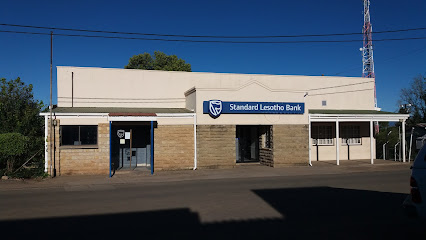
HA MOTJOKA
Explore HA MOTJOKA in Teyateyaneng – a vibrant cultural hub reflecting the rich heritage and community spirit of Lesotho.
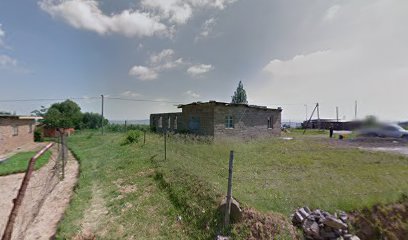
Qiloane falls
Experience the serene beauty of Qiloane Falls, a historical landmark in Lesotho, where nature and culture meet in breathtaking harmony.
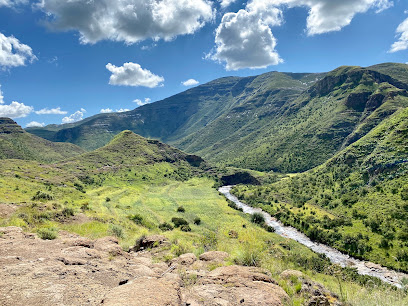
Unmissable attractions to see
Thaba Bosiu Cultural Village
Explore Thaba Bosiu Cultural Village, the birthplace of Lesotho, and discover the rich history and heritage of the Basotho nation.
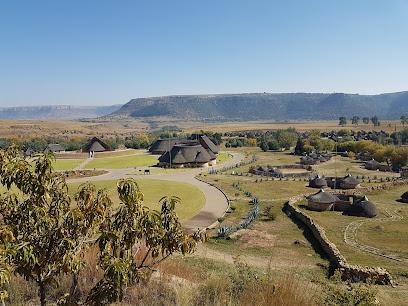
Leribe Dinosaur Footprints
Explore ancient dinosaur tracks in the heart of Lesotho's stunning landscapes near Leribe, a journey millions of years in the making.
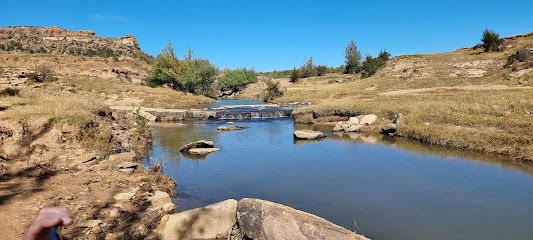
Bokong Nature Reserve
Discover Lesotho's highlands at Bokong Nature Reserve: breathtaking views, unique wildlife, and the stunning Lepaqoa Waterfall.
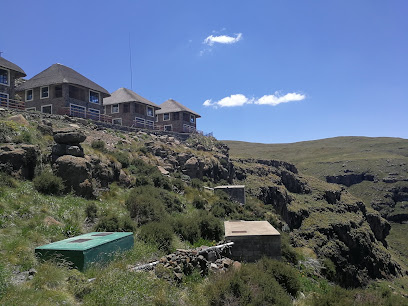
Mountain of roots
Discover Lesotho's hidden gem: the Mountain of Roots in Mokhathis, offering stunning views and unforgettable hiking adventures.
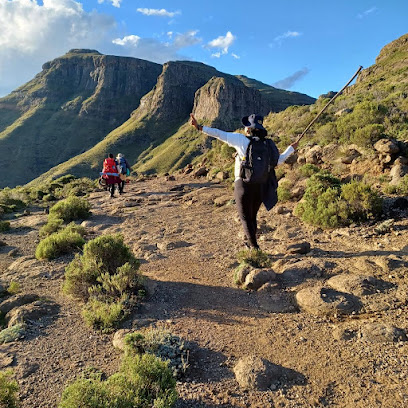
Makoanyane Park
Escape to Makoanyane Park in Teyateyaneng for serene green spaces, cultural events, and family-friendly relaxation in the heart of Lesotho.
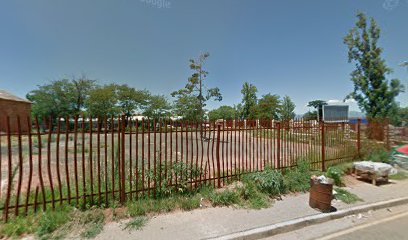
Taooana Square
Escape to Taooana Square in Teyateyaneng: a peaceful city park offering relaxation, natural beauty, and a glimpse into Lesotho's local culture.
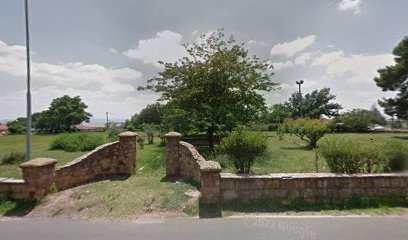
Molemane Thabeng
Explore the tranquil beauty of Molemane Thabeng, a nature preserve in Lesotho featuring stunning landscapes, diverse wildlife, and cultural heritage.

Molemane Forest
Experience the serene beauty of Molemane Forest in Teyateyaneng, Lesotho - a nature preserve filled with lush landscapes and diverse wildlife.

Tsehlanyane national park
Discover Lesotho's natural beauty at Tsehlanyane National Park: hiking, birdwatching, and stunning mountain scenery await!

Metolong Dam visitor's centre
Explore Lesotho's vital water source at Metolong Dam Visitor's Centre: education, recreation, and stunning views await!

Matebesi
Discover Matebesi, Lesotho: Experience Basotho culture, stunning mountain views, and authentic crafts in this hidden gem near Teyateyaneng.
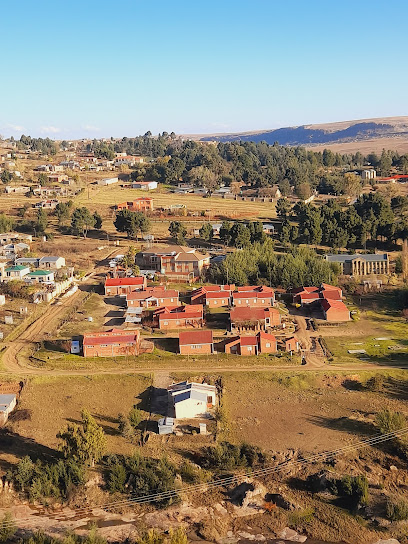
Marakabei
Discover Marakabei, Lesotho: A scenic village in the heart of the Highlands, perfect for nature lovers and cultural immersion.

Essential places to dine
Maliba Lodge
Discover unparalleled luxury amidst nature at Maliba Lodge in Lesotho – your gateway to adventure and relaxation.
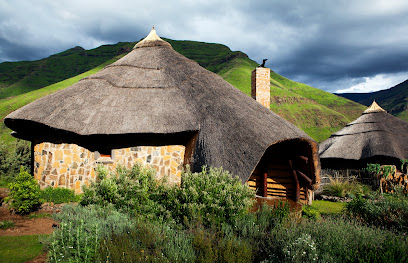
Lancer's Inn Hotel Maseru
Experience delightful dining and cozy accommodations at Lancer's Inn Hotel in Maseru - your gateway to authentic Basotho hospitality.
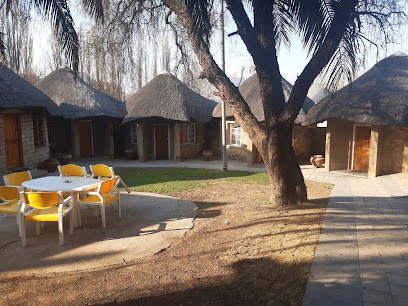
Blue Mountain Inn
Discover relaxation at Blue Mountain Inn in Teyateyaneng – where comfort meets breathtaking landscapes and delicious local cuisine.

Piripiri Restaurant
Discover authentic Portuguese cuisine at Piripiri Restaurant in Maseru, where every dish tells a story of flavor and tradition.
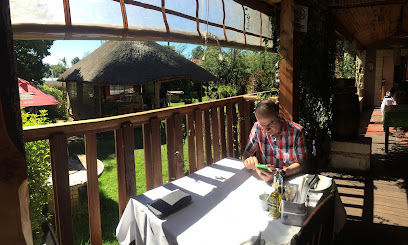
The Market
Discover Lesotho's flavors at The Market - a vibrant restaurant in Maseru Mall offering delicious local and international cuisine.
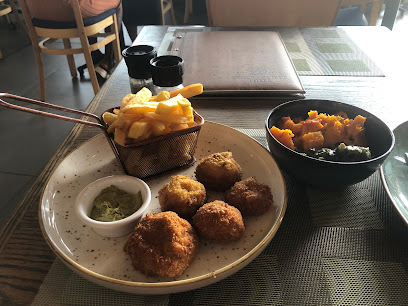
No.7 Restaurant
Discover authentic Basotho cuisine at No.7 Restaurant in Maseru – a culinary experience that celebrates local flavors and warm hospitality.
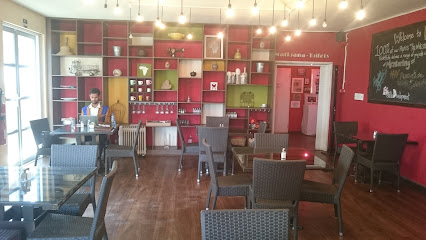
Café What?
Discover authentic African flavors at Café What?, a vibrant café in Maseru offering delicious dishes in a welcoming atmosphere.
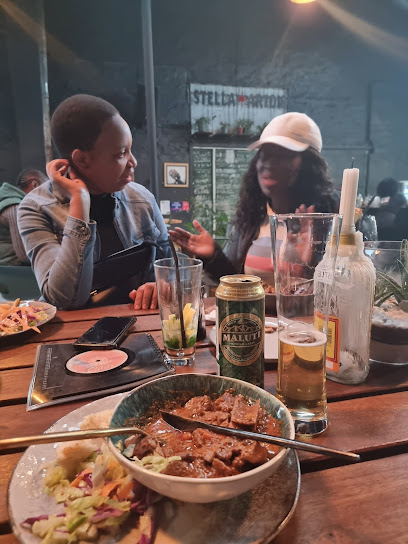
Cappello
Discover the vibrant flavors of Lesotho at Cappello, where local cuisine meets international flair in Maseru's culinary hotspot.
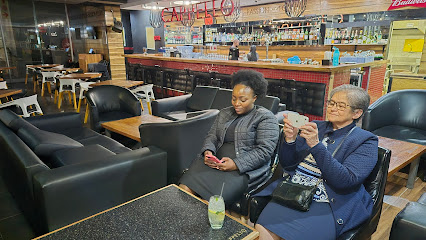
Artisan Lesotho
Savor authentic pizza crafted with local ingredients at Artisan Lesotho – where culinary excellence meets vibrant culture in Maseru.
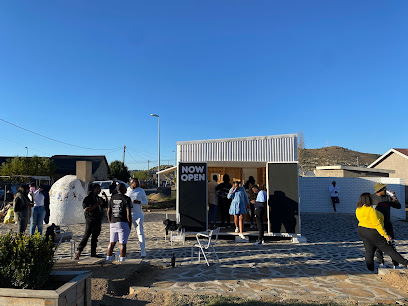
Sakisi's Chesa Nama
Experience authentic meat dishes at Sakisi's Chesa Nama in Foso - a culinary gem for meat lovers seeking rich flavors and local culture.
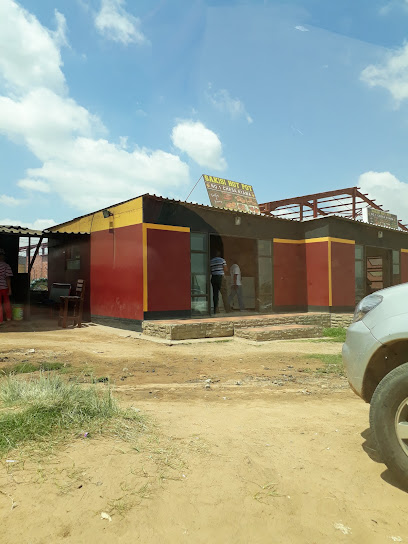
Ka Pitseng Guest House
Discover the warmth of Basotho hospitality at Ka Pitseng Guest House in Teyateyaneng – your cozy retreat in beautiful Lesotho.
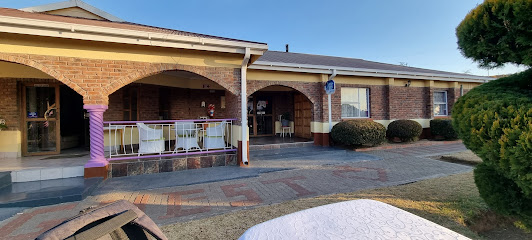
THE DECK MASERU
Experience Lesotho's culinary delights at The Deck Maseru - where tradition meets contemporary dining in the heart of Maseru.
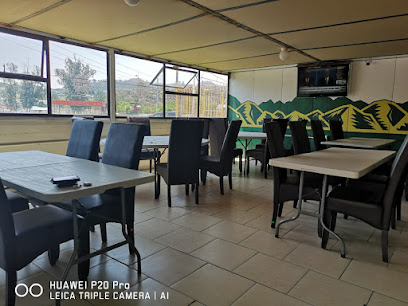
Koti Sphola Restaurant@R2
Experience authentic Basotho flavors at Koti Sphola Restaurant in Teyateyaneng – where culinary tradition meets modern comfort.
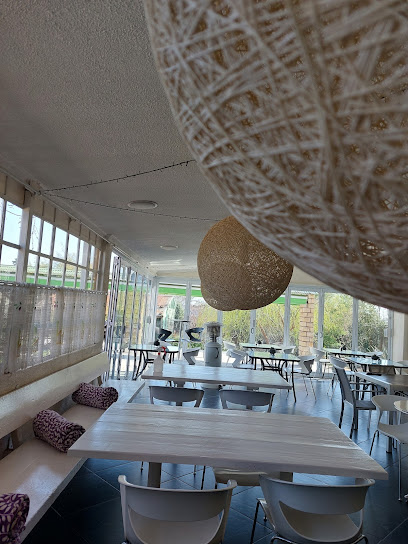
Victory Centre
Experience authentic Basotho flavors at Victory Centre - Maseru's vibrant dining spot blending local and international cuisines.
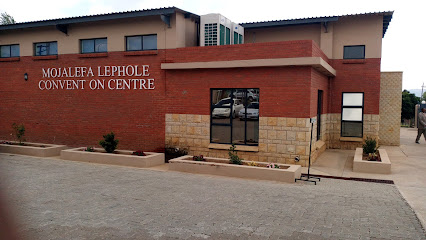
N'Jays Restaurant
Experience authentic Basotho cuisine at N'Jays Restaurant in Maseru—where every dish celebrates local flavors and warm hospitality.
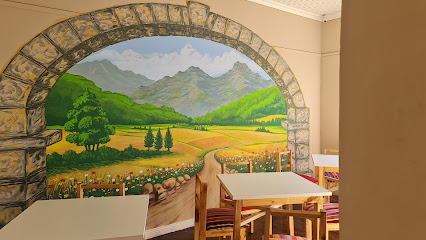
Markets, malls and hidden boutiques
Usave Ty
Explore Usave Ty in Teyateyaneng for fresh groceries and a taste of local culture in a vibrant shopping atmosphere.
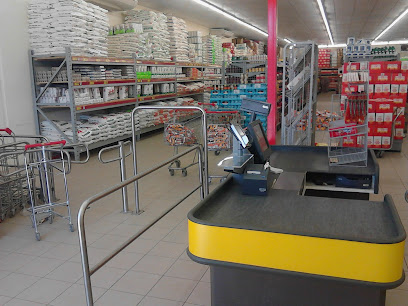
Super Care Pharmacy
Experience exceptional health services at Super Care Pharmacy in Teyateyaneng, your trusted partner for wellness while traveling.
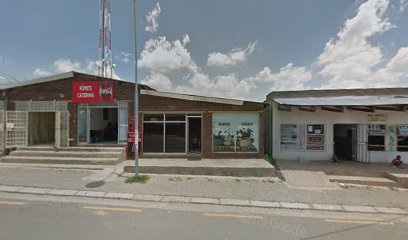
Lewis Teyateyaneng
Explore Lewis Teyateyaneng for exceptional furniture, appliances, and home goods to elevate your living space in Lesotho.
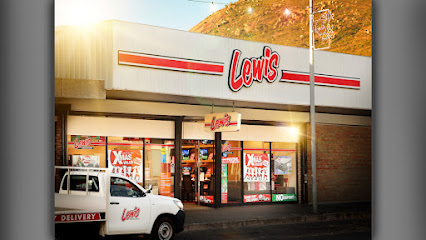
OK Furnitures
Explore OK Furnitures in Teyateyaneng for stylish home goods and local craftsmanship that enhance your living space.
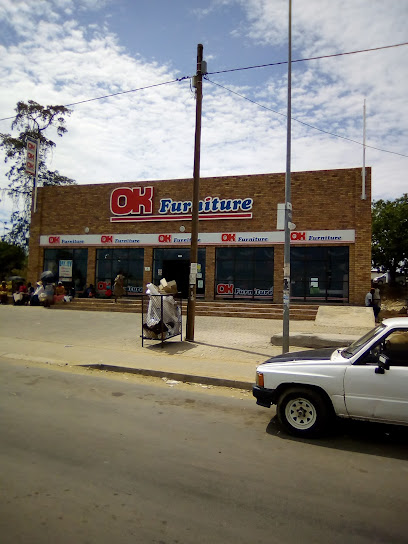
L&J Suppliers(Pty) Ltd
Discover authentic Lesotho crafts and local treasures at L&J Suppliers, a must-visit store in Teyateyaneng for every traveler.
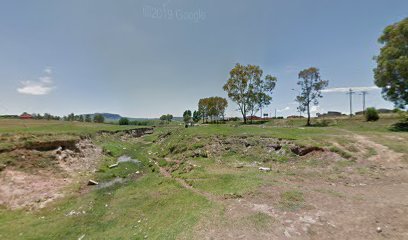
TY Four Square Supermarket
Uncover the flavors of Lesotho at TY Four Square Supermarket, a vibrant grocery store in Teyateyaneng, showcasing local produce and unique snacks.
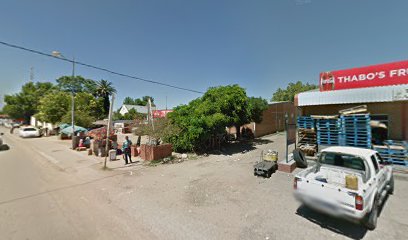
Jin Ling Supermarket 1
Explore the vibrant flavors of Lesotho at Jin Ling Supermarket, your gateway to local groceries and authentic Basotho delicacies.
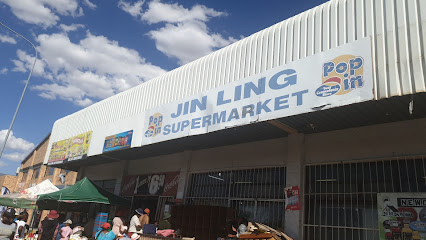
Mansoor's Supermarket
Explore the vibrant atmosphere of Mansoor's Supermarket in Teyateyaneng, where local culture meets everyday shopping.
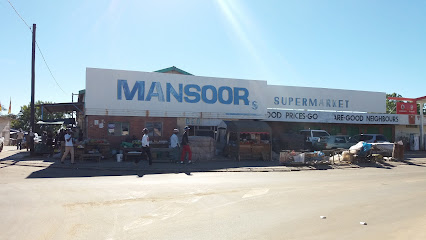
Mamzi Pharmacy
Discover Mamzi Pharmacy in Teyateyaneng for all your health and wellness needs while traveling in Lesotho.
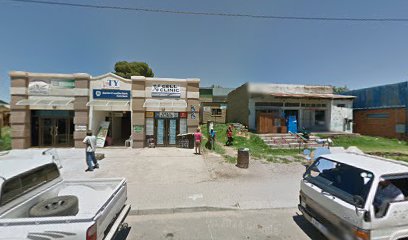
Lesotho Mountain Crafts
Explore the rich craft heritage of Lesotho at Lesotho Mountain Crafts in Teyateyaneng, where every item reflects the soul of Basotho culture.
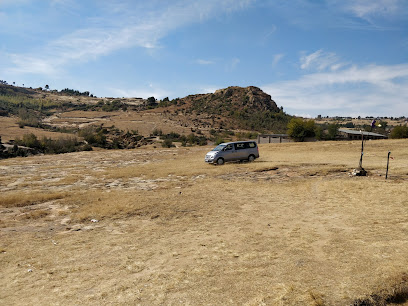
BISMILLAH Halal Food
Experience the rich flavors of Halal cuisine at BISMILLAH Halal Food in Teyateyaneng, where quality meets tradition.
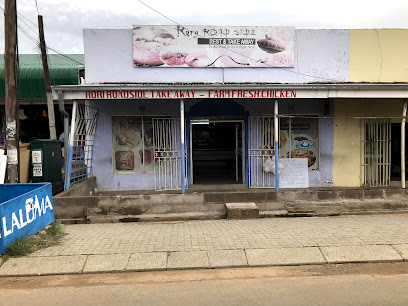
Jet Teyateyaneng
Explore Jet Teyateyaneng, a vibrant clothing store in Lesotho, where local culture meets contemporary fashion at affordable prices.
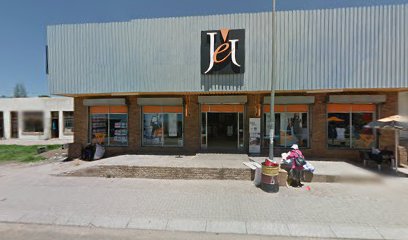
Dunns Teyateyaneng
Discover the latest fashion trends for men and women at Dunns Teyateyaneng, your premier clothing destination in Lesotho.

Laluma hardware
Explore Laluma Hardware in Teyateyaneng for quality tools and supplies to fuel your DIY projects and home renovations.
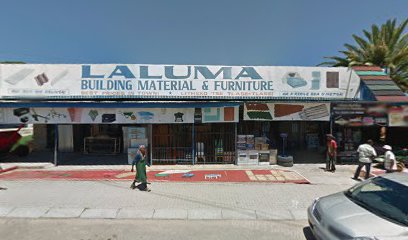
Cheap Price Mini Market
Discover local flavors and affordable shopping at the Cheap Price Mini Market in Teyateyaneng, where culture meets convenience.
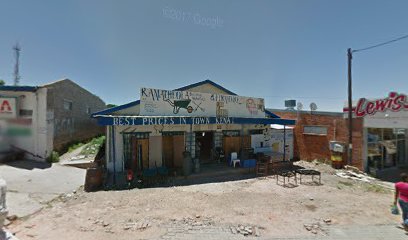
Essential bars & hidden hideouts
Naleli Centre Public Bar
Experience the vibrant atmosphere of Naleli Centre Public Bar in Foso, where local culture and great drinks come together for an unforgettable evening.
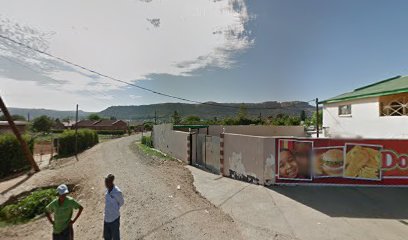
Good Times Valley
Discover the flavors of Teyateyaneng at Good Times Valley, a charming restaurant offering a taste of local cuisine in a cozy atmosphere.
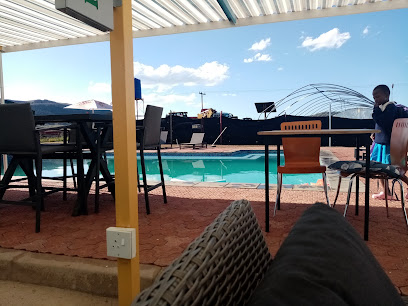
TC Bar
Discover TC Bar in Foso - a lively destination for enjoying drinks, live music, and the vibrant local culture.
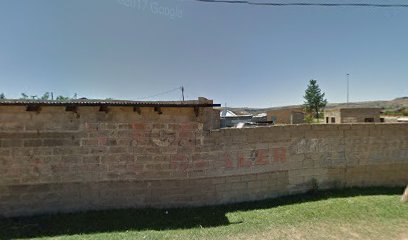
Mokhothu Bar
Discover Mokhothu Bar: A lively oasis in Teyateyaneng offering local drinks, vibrant music, and an authentic Basotho experience.
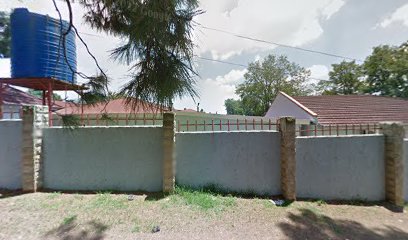
Holy Cross Bar
Experience the vibrant local culture at Holy Cross Bar, a social hub in Teyateyaneng, perfect for drinks and friendly conversations.
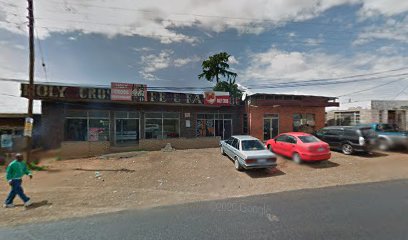
Lekhaloaneng Public Bar
Discover the lively spirit of Lekgaloaneng at Lekhaloaneng Public Bar, where local culture meets refreshing drinks and friendly vibes.
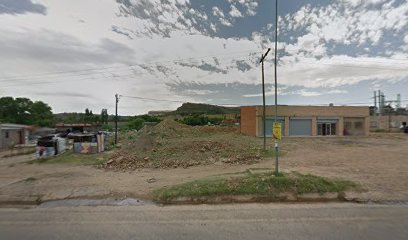
Mummy's Off Sales
Experience the lively atmosphere of Mummy's Off Sales in Teyateyaneng, where local charm meets refreshing beverages for an unforgettable night out.
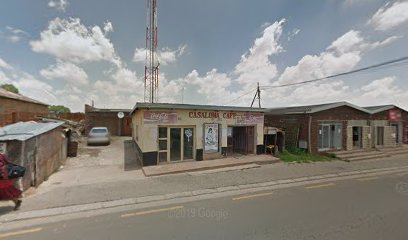
Lekhetho's Tarven
Discover the vibrant nightlife at Lekhetho's Tarven in Hlotse, where local flavors and music create an unforgettable bar experience.

Morning Side Bar
Experience the vibrant local culture at Morning Side Bar in Teyateyaneng, where relaxation meets authentic flavors in a cozy setting.
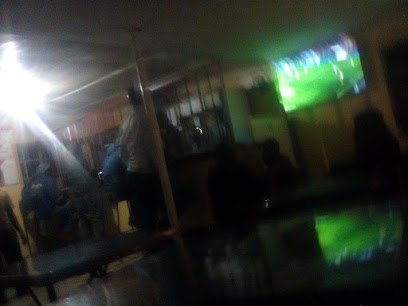
P.S Bar
Explore Foso's vibrant nightlife at P.S Bar, where local drinks and a welcoming ambiance create unforgettable memories.
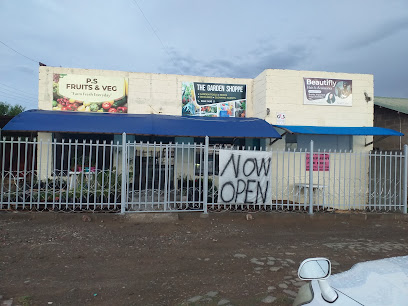
Offside Bar
Experience the vibrant nightlife at Offside Bar in Mapoteng, where local charm meets an inviting atmosphere for unforgettable evenings.
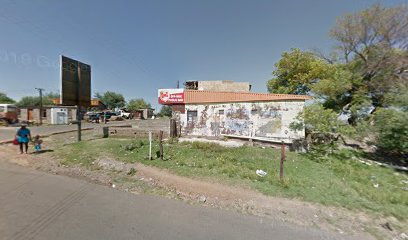
@the pips
Experience the warmth of Lesotho's culture at The Pips, a cozy lounge in Teyateyaneng offering local drinks and a vibrant atmosphere.
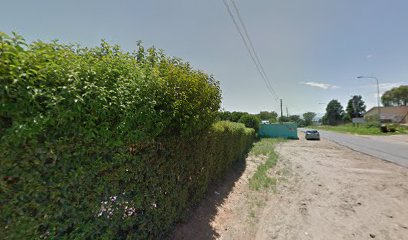
Crispy lounge
Experience the lively nightlife at Crispy Lounge, Teyateyaneng's premier night club with vibrant music and a welcoming atmosphere.
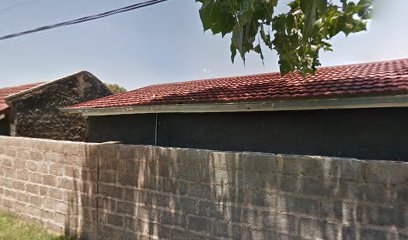
Capital Bar
Experience Teyateyaneng's nightlife at Capital Bar, where great drinks and good vibes come together for an unforgettable evening.
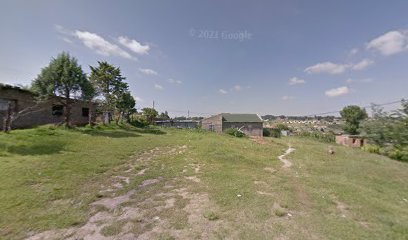
Local Phrases
-
- HelloLumela
[loo-meh-lah] - GoodbyeTsamaea hantle
[tsah-mah-eh han-tleh] - YesEa
[eh-ah] - NoChe
[chay] - Please/You're welcomeNgiyacela
[nee-yah-cheh-lah] - Thank youKea leboha
[keh-ah leh-boh-hah] - Excuse me/SorryTsamaea hantle
[tsah-mah-eh han-tleh] - How are you?U phela joang?
[oo peh-lah jwah-ng] - Fine. And you?Ke phela hantle. O kae?
[keh peh-lah han-tleh. oh kah-eh] - Do you speak English?Na u bua se-English?
[nah oo boo-ah seh-english] - I don't understandHa ke utloa
[hah keh oot-loh-ah]
- HelloLumela
-
- I'd like to see the menu, pleaseKe kopa ho bona menu, hantle
[keh koh-pah hoh boh-nah meh-noo han-tleh] - I don't eat meatHa ke tloaela nama
[hah keh tloh-ah-eh-lah nah-mah] - Cheers!Tsuba!
[tsoo-bah] - I would like to pay, pleaseKe kopa ho fumana, hantle
[keh koh-pah hoh foo-mah-nah han-tleh]
- I'd like to see the menu, pleaseKe kopa ho bona menu, hantle
-
- Help!Boholo!
[boh-hoh-loh] - Go away!Shoa!
[shwah] - Call the Police!Phonela Polisi!
[poh-neh-lah poh-lee-see] - Call a doctor!Phonela Moruti!
[poh-neh-lah moh-roo-tee] - I'm lostKe ile ka leka
[keh ee-leh kah leh-kah] - I'm illKe bethe
[keh beh-teh]
- Help!Boholo!
-
- I'd like to buy...Ke kopa ho fumana...
[keh koh-pah hoh foo-mah-nah] - I'm just lookingKe rata ho bona
[keh rah-tah hoh boh-nah] - How much is it?Ke bokae?
[keh boh-kah-eh] - That's too expensiveEna e ncha kae
[eh-nah eh nah chah-eh] - Can you lower the price?Na u nabeloa sephiri?
[nah oo nah-beh-loh-ah seh-pee-ree]
- I'd like to buy...Ke kopa ho fumana...
-
- What time is it?Ke nako mang?
[keh nah-koh mah-ng] - It's one o'clockKe hoba e ka nngwe
[keh hoh-bah eh kah nun-gweh] - Half past (10)Mokotla wa leha (10)
[moh-koh-tlah wah leh-hah (10)] - MorningMosebetsi
[moh-seh-bet-see] - AfternoonMoesakholo
[moh-eh-sah-koh-loh] - EveningNonong
[noh-noh-ng] - YesterdayNtlha
[uhn-tlah] - TodayNamuhla
[nah-moo-hlah] - TomorrowBoholo
[boh-hoh-loh] - 1Nngwe
[nun-gweh] - 2Puo
[poo-oh] - 3Tharo
[tah-roh] - 4Nne
[nn-neh] - 5Tlhano
[tlhah-noh] - 6Tlhare
[tlhah-reh] - 7Supa
[soo-pah] - 8Robong
[roh-bong] - 9Leshome
[leh-shoh-meh] - 10Lesome
[leh-soh-meh]
- What time is it?Ke nako mang?
-
- Where's a/the...?Kae...?
[kah-eh] - What's the address?Kae aterese?
[kah-eh ah-teh-reh-seh] - Can you show me (on the map)?Na u nka hona (ka mepa)?
[nah oo nkah hoh-nah (kah meh-pah)] - When's the next (bus)?Ke nako ya ntlha?
[keh nah-koh yah uhn-tlah] - A ticket (to ....)Litshebeletso (ho ....)
[lee-tsheh-beh-let-soh hoh]
- Where's a/the...?Kae...?
History of Teyateyaneng
-
Teyateyaneng, often abbreviated as TY, is the capital town of the Berea District in Lesotho. The town was founded in the late 19th century by Chief Masopha, the son of King Moshoeshoe I, who played a vital role in the consolidation of the Basotho nation. The name 'Teyateyaneng' is derived from the Sesotho words 'Teya-teyaneng,' which means 'place of quick sands.' The town was strategically established as a stronghold during the times of conflict with neighboring tribes and colonial forces.
-
During the colonial era, Teyateyaneng served as a crucial administrative center under British rule. The town's infrastructure began to develop with the establishment of key governmental buildings, schools, and healthcare facilities. The influence of the British introduced new architectural styles and urban planning methodologies, some of which are still evident in the town's layout and buildings today. This period also saw the growth of missionary activities, leading to the establishment of churches and educational institutions.
-
Teyateyaneng played a significant role during the Gun War (1880-1881) and the subsequent Basuto Wars (1881-1898). The town was a focal point for the Basotho resistance against British colonial forces. Chief Masopha's leadership was pivotal during these conflicts, and many battles were fought in and around the Teyateyaneng area. The town's geographic location made it a strategic military site, and remnants of fortifications from this era can still be found in the surrounding landscape.
-
The cultural heritage of Teyateyaneng is rich and diverse, reflecting the traditions of the Basotho people. The town is known for its vibrant crafts market, where visitors can find traditional Basotho blankets, handmade pottery, and intricate beadwork. Teyateyaneng is also home to several cultural festivals that celebrate Basotho music, dance, and oral storytelling. These cultural practices are not only a source of pride for the local community but also attract tourists from around the world.
-
In contemporary times, Teyateyaneng has evolved into a bustling town that balances tradition with modernity. It serves as an important commercial hub in the Berea District, with a growing economy driven by agriculture, crafts, and small-scale industries. The town's educational institutions continue to play a significant role in the region, fostering the next generation of leaders and professionals. Despite modern developments, Teyateyaneng has managed to retain its historical charm and cultural essence, making it a unique destination for travelers.
Teyateyaneng Essentials
-
Teyateyaneng, often referred to as 'TY', is located in the Berea District of Lesotho. The closest airport is Moshoeshoe I International Airport in Maseru, approximately 50 kilometers away. From the airport, you can take a taxi or arrange for a shuttle service to Teyateyaneng. Alternatively, you can take a minibus (known locally as a kombi) from Maseru to Teyateyaneng, a journey that typically takes around an hour.
-
In Teyateyaneng, local transportation options include minibuses (kombis) and taxis. Kombis are the most common and cost-effective means of getting around, but they can be crowded. Taxis offer a more comfortable ride and can be found around the town center. For those who prefer to explore at their own pace, renting a car is an option, although driving in Lesotho can be challenging due to road conditions and local driving habits.
-
The official currency in Lesotho is the Lesotho Loti (LSL), although South African Rand (ZAR) is also widely accepted. Credit cards are accepted in some hotels, restaurants, and shops, but it is advisable to carry cash, especially for smaller establishments and in rural areas. ATMs are available in Teyateyaneng, but it is wise to have enough cash on hand before venturing out.
-
Teyateyaneng is generally a safe destination for tourists, but it is important to take standard precautions. Avoid walking alone at night and keep an eye on your belongings in crowded places. While there are no specific high-crime areas targeting tourists, always stay vigilant and aware of your surroundings. Petty crime such as pickpocketing can occur, so keep your valuables secure.
-
In case of emergency, dial 112 for immediate assistance. The local police station and medical facilities are available in Teyateyaneng. It is recommended to have travel insurance that covers medical emergencies. For minor health issues, there are pharmacies in the town where you can purchase over-the-counter medications. The nearest major hospital is in Maseru, about an hour away.
-
Fashion: Do dress modestly, especially when visiting religious or cultural sites. Avoid wearing revealing clothing. Religion: Do respect local customs and traditions. Always remove your hat when entering churches. Public Transport: Do be respectful and give up your seat to elderly passengers. Don't eat or drink on public transport. Greetings: Do greet people with a smile and a handshake. A small bow is a sign of respect. Eating & Drinking: Do try local delicacies and accept food offerings graciously. Don't refuse hospitality, as it is considered impolite.
-
To experience Teyateyaneng like a local, visit the local markets where you can buy traditional Basotho crafts and fresh produce. Engage with locals, as they are often friendly and willing to share stories about the town's history and culture. Don't miss visiting the nearby Thaba-Bosiu, a historical site of great significance to the Basotho people. For a unique experience, attend a local music or dance performance, which often takes place during festivals and celebrations.
Trending Landmark in Teyateyaneng
-
Blue Mountain Inn
-
Basotho Hat
-
Liphofung Cave,chalets
-
The Lion Rock Mountain
-
Nexx square
-
Ka Pitseng Guest House
-
Kome Caves
-
King Moshoeshoe I Royal Graves at Thaba Bosiu
-
Ha Kome Caves
-
Gates of Paradise Pass
-
The Stone Guest House
-
CEHAL Hospital: Center For Equal Health Access Lesotho
-
Standard Lesotho Bank
-
HA MOTJOKA
-
Qiloane falls
Nearby Cities to Teyateyaneng
-
Things To Do in Maseru
-
Things To Do in Leribe
-
Things To Do in Butha-Buthe
-
Things To Do in Mafeteng
-
Things To Do in Thaba-Tseka
-
Things To Do in Mohale's Hoek
-
Things To Do in Mokhotlong
-
Things To Do in Quthing
-
Things To Do in Bloemfontein
-
Things To Do in Kimberley
-
Things To Do in Durban
-
Things To Do in Johannesburg
-
Things To Do in Pretoria
-
Things To Do in East London
-
Things To Do in Malkerns







